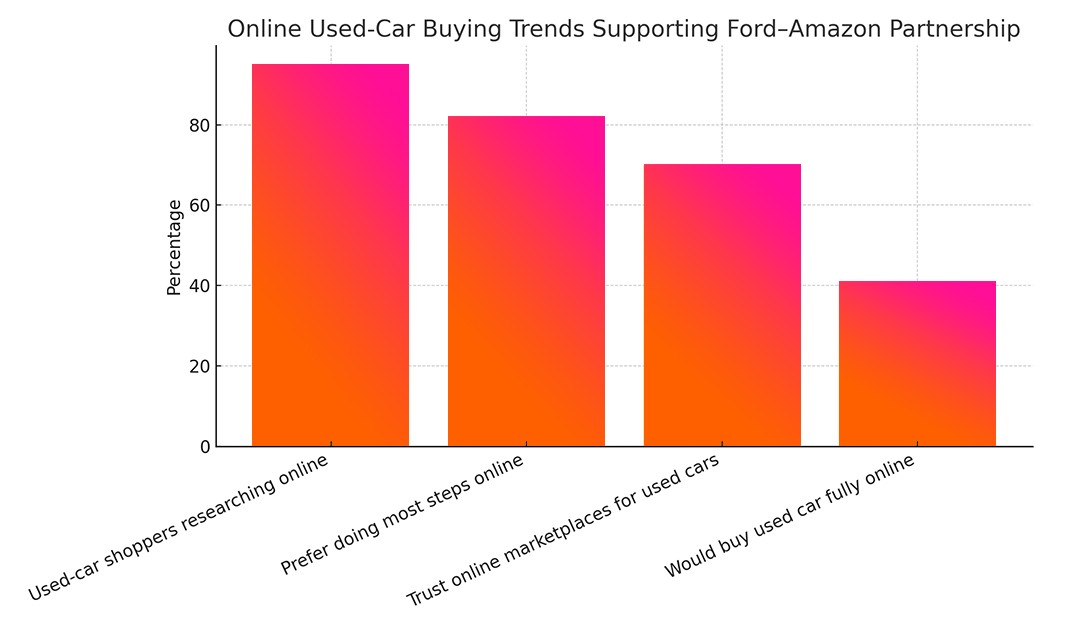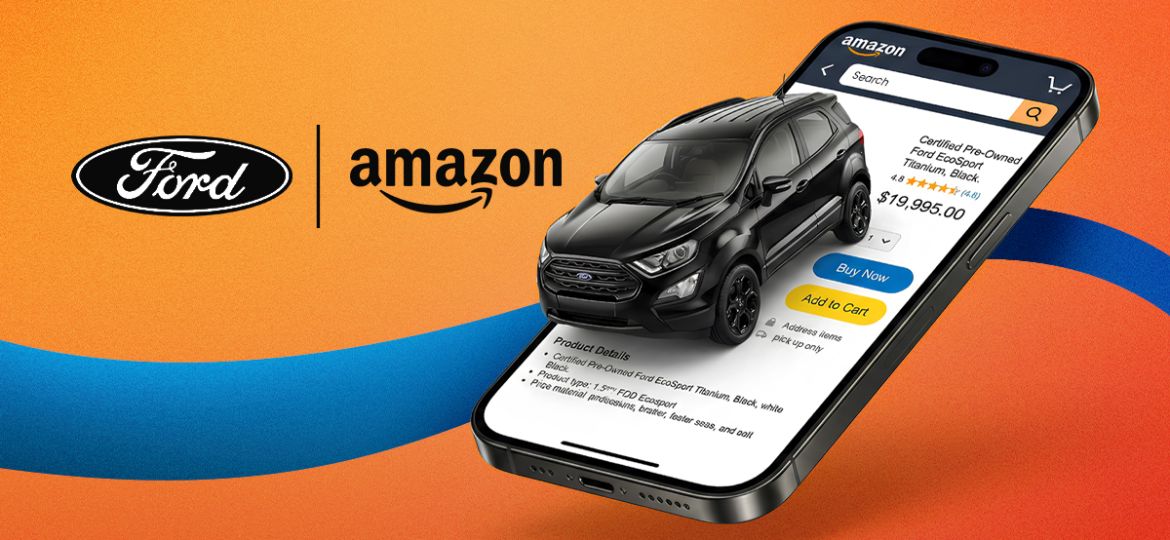How Ford and Amazon are Shaping the Future of E-Commerce
In a groundbreaking move that signals a significant shift in the automotive and retail industries, Ford Motor Company has partnered with Amazon to bring certified pre-owned Ford vehicles directly to consumers through the online marketplace.
Initially launching in major cities like Los Angeles, Seattle, and Dallas, this innovative collaboration allows customers to shop for vehicles from the comfort of their homes, completing most paperwork online and simply picking up their cars at designated dealerships. It’s a revolutionary “click-to-cart” experience for what has traditionally been an offline purchase.
Shop Certified Pre-Owned Ford Vehicles on Amazon
Shoppers can now easily browse a wide selection of certified pre-owned Ford vehicles and explore dealer inventory directly on Amazon’s platform. This unique approach allows customers to complete most of the paperwork online, streamlining the purchasing process. After completing the online steps, customers can simply visit their local dealership to pick up their new vehicle.
A New Era of Car Buying

This partnership marks a significant shift in how consumers purchase cars, blending the convenience of digital shopping with the traditional trust that comes from local dealerships. As Amazon spokesperson Patrick Graham mentioned, this initiative will start in the U.S. with plans for international expansion in the future, although a specific timeline has yet to be announced.
Ford aims to combine the best of both worlds with this partnership. Robert Kaffl, Ford’s executive director of U.S. Sales and Dealer Relations, highlighted the goal: “Amazon Autos allows Ford Dealers to offer their certified pre-owned vehicles through Amazon’s accessible digital platform, while maintaining the benefits that customers enjoy from their relationships with our Ford Dealers.”
Why This Matters
Ford’s partnership with Amazon represents a pivotal shift in online car purchasing, signaling a broader transformation in the e-commerce landscape. As digital retail extends into traditionally complex sectors, it fundamentally alters the ways brands interact, consumers assess options, and marketers operate within digital frameworks.
Here are the key insights:
1. Evolving Consumer Expectations:
As digital convenience becomes the norm, consumers are redefining their expectations across all purchase categories. From groceries to cars, the demand for seamless, transparent, and swift transactions is higher than ever. Marketers must adapt strategies to meet these heightened expectations and ensure user experiences align with the standard of excellence consumers now expect.
2. Emphasis on Brand Storytelling:
With high-value products migrating to e-commerce platforms, the marketplace is now the focal point for brand narratives. Every element—content, imagery, microcopy, and structured data—needs to foster trust and set the brand apart from the competition. Marketers should optimize for discoverability and search relevance, ensuring messaging is both engaging and easy to digest within online environments.
3. Shift Towards Digital and Comparison-Based Research:
Today’s consumers approach significant purchases with seasoned online shopping strategies, incorporating behaviors such as filtering options, comparing products, reading reviews, scanning specifications, and checking warranties. This trend necessitates that marketers present information in accessible formats that facilitate quick and confident decision-making.
4. The Rise of Hybrid Buying Journeys:
Even when transactions require offline interactions, decision-making increasingly begins online. This “digital front door” is where preferences form, opinions solidify, and intent converts into action. Marketers must navigate this pre-purchase journey with coherent messaging and unified experiences, creating a seamless transition from online exploration to offline buying.
The Ford and Amazon partnership transcends mere convenience; it serves as a blueprint for the evolution of e-commerce in the coming decade. As consumer trust in digital platforms grows, logistics improve, and expectations rise, we can anticipate the facilitation of more complex, high-value transactions online.
This partnership illustrates a future where your next car purchase may be only a few clicks away, signaling a new era in how we shop for big-ticket items. As this trend continues to develop, it will redefine not only car buying but also the landscape of e-commerce as a whole.
The future of shopping isn’t coming. It’s already parked in your Amazon cart.
Want to stay visible?

